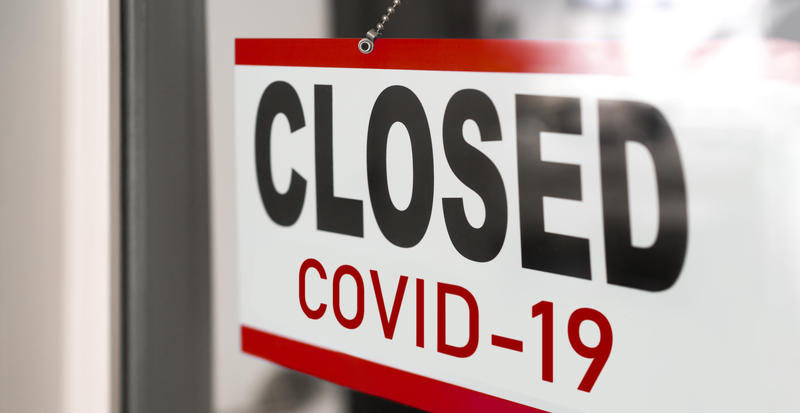By Luke Jones
A borrower called my office with panic and resignation in her voice. She was requesting a loan deferral for the first time since she started her business in 2005. Her corner comfort food restaurant had grown to be an iconic institution in the Harlem neighborhood she grew up in, and she’d been preparing to open a second location. Now, after failing to receive any aid from the federal government, she is worried about the future of her business, its employees, and the neighborhood that made it flourish.
The effects of COVID-19 have disproportionately impacted low-income communities and communities of color. It has also dealt a huge blow to small businesses. This is what happens at the intersection of these two issues.
I work for a community development finance institution (CDFI) — a financial firm dedicated to providing affordable, transparent, and flexible loans to disadvantaged individuals and communities who have been underserved by the traditional banking sector. The goal is to provide a route for people who have historically been economically marginalized to build wealth, build businesses, obtain affordable housing, and reclaim financial health, control, and autonomy. Data from the Federal Reserve and FDIC shows that minority business owners are more likely to be denied credit by institutional lenders, even when their credit risk is low. Nearly one-third of minority business owners reported being actively discouraged from seeking a loan from these groups. For these reasons, the majority of CDFI activity is in the realm of small business lending, which has been shown to have a catalytic impact on surrounding neighborhoods and communities, and has been one of the most effective ways to narrow the wealth gap.
With this inequitable reality, along with the pandemic, as the backdrop, President Trump signed the Coronavirus Aid, Relief, and Economic Security (CARES) Act on March 27th, familiar to most thanks to the $1,200 stimulus checks sent to individuals who met certain criteria; the law also set aside $300 billion ($349 total, net out administration costs and fees) for forgivable, low-cost loans to be made to businesses for the purposes of maintaining their payroll through the Payroll Protection Program (PPP) overseen by the U.S. Small Business Administration (SBA). Within 13 days, $290 billion of that funding had been used up, and the rest was earmarked to pay fees to the banks who participated (yes, that’s $10 billion of federal taxpayer money as fees to the banks, but that’s not what we’re talking about). Data released by the SBA revealed that while over 21 million of America’s 30 million small businesses applied, only 1.6 million were approved, with an average loan size of $206,000. It was known that most banks were only reviewing applications from clients with pre-existing credit relationships with the bank, but from loan data released by the SBA on April 13th, it also appears that banks may have prioritized larger loan requests in order to maximize the fees they received from the federal government. While the SBA normally collects demographic data with their guaranteed loans, it opted not to on the application forms for the PPP, so we will never truly know what portion of those funds went to businesses owned by women or people of color. There is significant reason, however, to presume that that portion is staggeringly small.
Not only are women- and minority- owned firms are much less likely to have pre-existing credit relationships with banks due to exclusionary lending practices, but banks were also looking to give loans to the largest firms that still qualified as small businesses. Women and black-owned businesses are less likely to fall into this category compared to their white male counterparts; research from the Brookings Institution shows that minority-owned businesses tend to have 30 percent fewer employees, and about 50-90 percent of sales even when controlling for staff size.
The best mechanism for combatting this disparity would have been for the federal government to ensure that organizations like CDFIs, targeted small business development centers (SBDCs) and minority depository institutions (MDIs) were guaranteed access to CARES Act financing. While none of these entities was explicitly ineligible from participating, all of them are much less likely to have liquidity (cash on-hand) to make the loans in such a quick time frame. It is also typically banks who have experience with this specific type of SBA loan guarantee program (SBA 7(a) loans). While $300 billion of the total $349 billion of financing was directed to the PPP, only $25 million (0.00007%) was directed to women’s business centers and $10 million (.00002%) to minority business centers for support services. The $310 billion second round of stimulus set aside $30 billion (less than 10 percent) specifically for CDFIs, MDIs, and any banks with assets under $10 billion. The issue is that 97 percent of all banks have assets under $10 billion, ensuring CDFIs and MDIs who are well-positioned to support underserved small businesses are still likely to see a very small slice of the pie.
Data from the Filene Institute shows that minority firm owners’ personal life and finances are much more likely to be inextricably linked with their small business; they are more likely to have their personal credit score tied to the business, more likely to use their own funds to finance the business, and more likely to rely on the business as their sole source of income. They are also more likely to fall into the category of “nonemployee business†(common examples are gig-workers, freelancers, taxi drivers, hair stylists who rent a salon chair, etc.). This means that the health and lifestyle disparities prevalent during the pandemic are bleeding into minorities’ small businesses, and vice versa. Communities of color are experiencing much higher infection and mortality rates, and women and people of color are also much more likely to be the primary caretaker for their families — all of which makes it near impossible to run a small business. Inability to qualify for the $1,200 stimulus check also damages people’s ability to continue to finance their small business, and anybody without income high enough to file taxes is having extreme difficulty accessing that money. Undocumented immigrants, and in some cases even those married to them, are ineligible for the funds. Native tribes have still not received funding, the amount they were allocated was not even half of what was requested, and while some may be eligible for the same personal stimulus check, there are significant hurdles to jump over. Anecdotally, both of these communities are also by a large margin the most underbanked and the most dependent on alternative lenders like CDFIs.
It is my fear that this pandemic and our inadequate response to it will undo decades of work by CDFIs, MDIs, and similar nonprofits and alternative lenders to foster entrepreneurship and combat generations of wealth and livelihood disparities. I understand that as somebody who works for one of these organizations it might sound like my opinion is biased. It is important to remember, though, that the huge (huge, huge) bulk of that work was done by the women and POC who built their small business from the ground up, and by their communities who fostered and supported those businesses and it is heartbreaking to see that progress threatened.
The ways in which an outbreak like this one highlights and (severely) exacerbates already existing disparities are too numerous to list, but it is clear that once the dust settles, not only will communities of color disproportionately be burdened with recovering from the staggering death toll COVID-19 has caused, but they’ll face an unfairly heavy economic toll as well.
Luke Jones is a second-year MPA student at NYU Wagner specializing in Social Impact, Innovation and Investment. As an undergraduate in Cornell University’s Policy Analysis & Management department, Luke worked as Program Administrator for a food justice nonprofit in Ithaca, N.Y. He now serves as Program Officer for the New Markets Tax Credit program at TruFund Financial Services, a CDFI providing financing in disadvantaged communities across the country, and has managed their growing NMTC portfolio over the past three years




